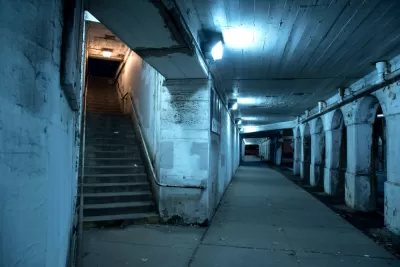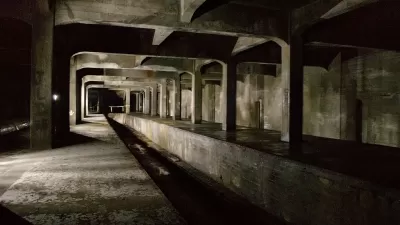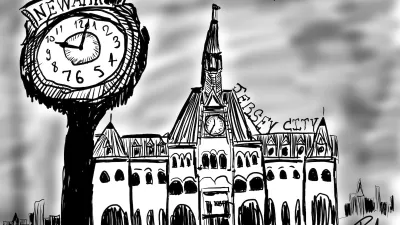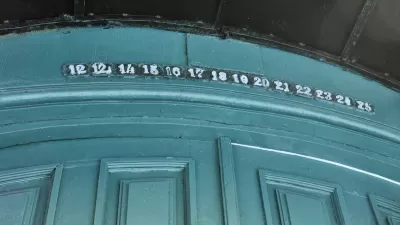According to one author, urban ghost stories are one way humans fight the alienation of modern life.

“Most metropolises are overrun with ghosts,” asserts Azania Imtiaz Khatri-Patel in a piece on Aeon. But Khatri-Patel isn’t just referring to the unfortunate souls that populate urban legends. Rather, “Our lives in cities are shaped by invisible hands, body-less voices and an eerie automation of infrastructure.”
For Khatri-Patel, “The automation of cities has the effect of alienating people from a state of personhood. It’s as if there is a tacit shadow-self that urban life produces.” Khatri-Patel recounts the anecdote of the woman whose deceased husband recorded some of London’s famous “mind the gap" announcements. After the transit agency switched the announcements to automated voices in 2012, Margaret McCollum’s story made national news, striking a chord with the public and prompting Transport for London to restore the original recordings at the station nearest to McCollum.
The article gives a wide range of examples of how the tension between tradition and modernity, between established customs and industrialization, between humans and automation, creates a need for urban ghost stories and legends about the abandoned spaces and mysterious nooks of modern cities. As Khatri-Patel points out, “Utilitarian approaches to urban planning do not leave room for emptiness. Spaces that fall into disuse for one purpose are quickly repurposed for another.” When spaces do stay vacant, they take on an eerie atmosphere, lending themselves to shadowy entities both literal and metaphorical.
“Yet there is a potent reconciliatory power to memory and ghosts. As we mark ghosts, we return their personhood,” Khatri-Patel concludes. Acknowledging urban ghosts means understanding the layers of history and meaning that accumulate as cities and society continuously evolve.
FULL STORY: Ghosts haunt cities, seeking revenge for the disappeared past

Alabama: Trump Terminates Settlements for Black Communities Harmed By Raw Sewage
Trump deemed the landmark civil rights agreement “illegal DEI and environmental justice policy.”

Planetizen Federal Action Tracker
A weekly monitor of how Trump’s orders and actions are impacting planners and planning in America.

The 120 Year Old Tiny Home Villages That Sheltered San Francisco’s Earthquake Refugees
More than a century ago, San Francisco mobilized to house thousands of residents displaced by the 1906 earthquake. Could their strategy offer a model for the present?

In Both Crashes and Crime, Public Transportation is Far Safer than Driving
Contrary to popular assumptions, public transportation has far lower crash and crime rates than automobile travel. For safer communities, improve and encourage transit travel.

Report: Zoning Reforms Should Complement Nashville’s Ambitious Transit Plan
Without reform, restrictive zoning codes will limit the impact of the city’s planned transit expansion and could exclude some of the residents who depend on transit the most.

Judge Orders Release of Frozen IRA, IIJA Funding
The decision is a victory for environmental groups who charged that freezing funds for critical infrastructure and disaster response programs caused “real and irreparable harm” to communities.
Urban Design for Planners 1: Software Tools
This six-course series explores essential urban design concepts using open source software and equips planners with the tools they need to participate fully in the urban design process.
Planning for Universal Design
Learn the tools for implementing Universal Design in planning regulations.
Clanton & Associates, Inc.
Jessamine County Fiscal Court
Institute for Housing and Urban Development Studies (IHS)
City of Grandview
Harvard GSD Executive Education
Toledo-Lucas County Plan Commissions
Salt Lake City
NYU Wagner Graduate School of Public Service





























